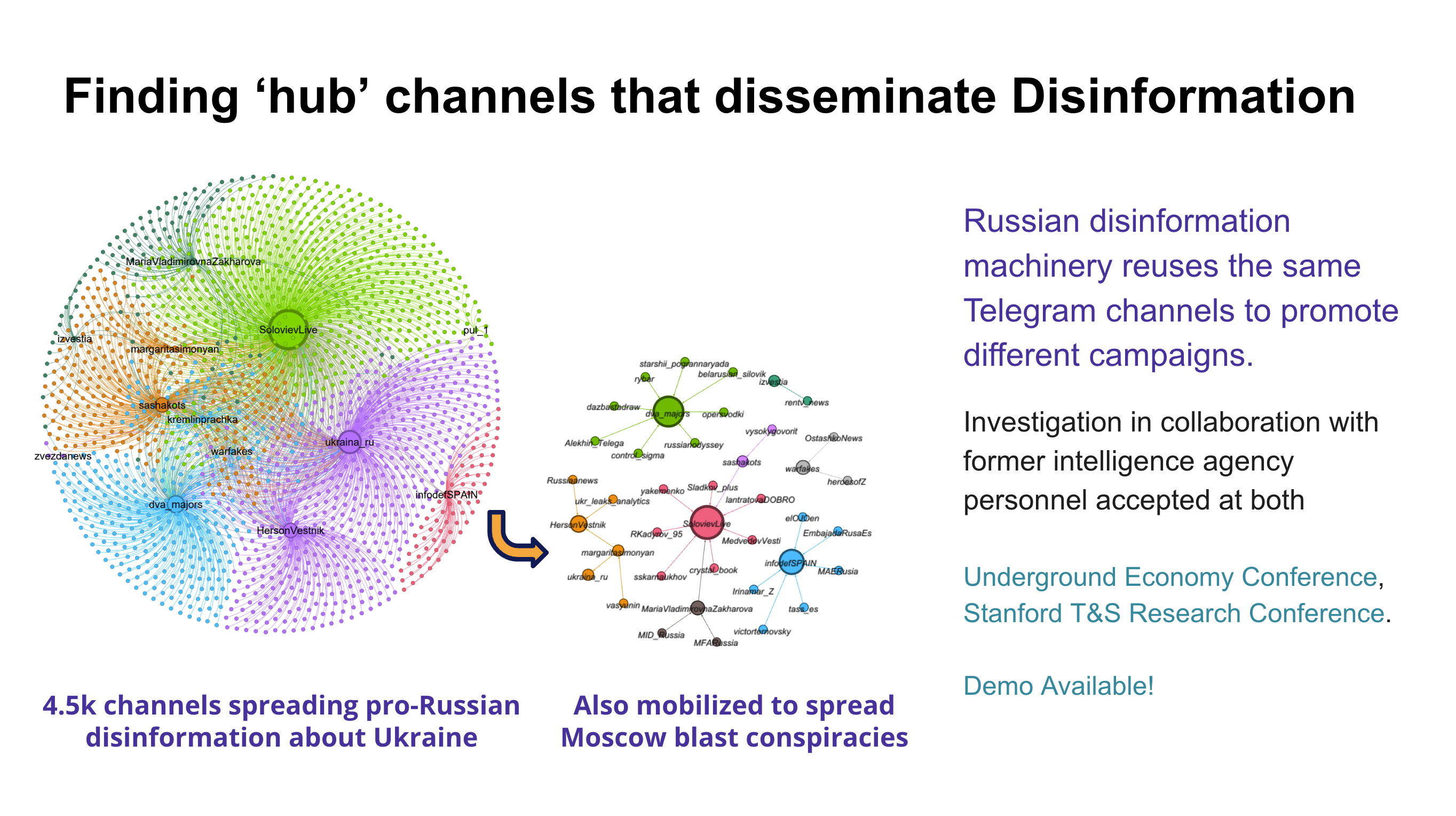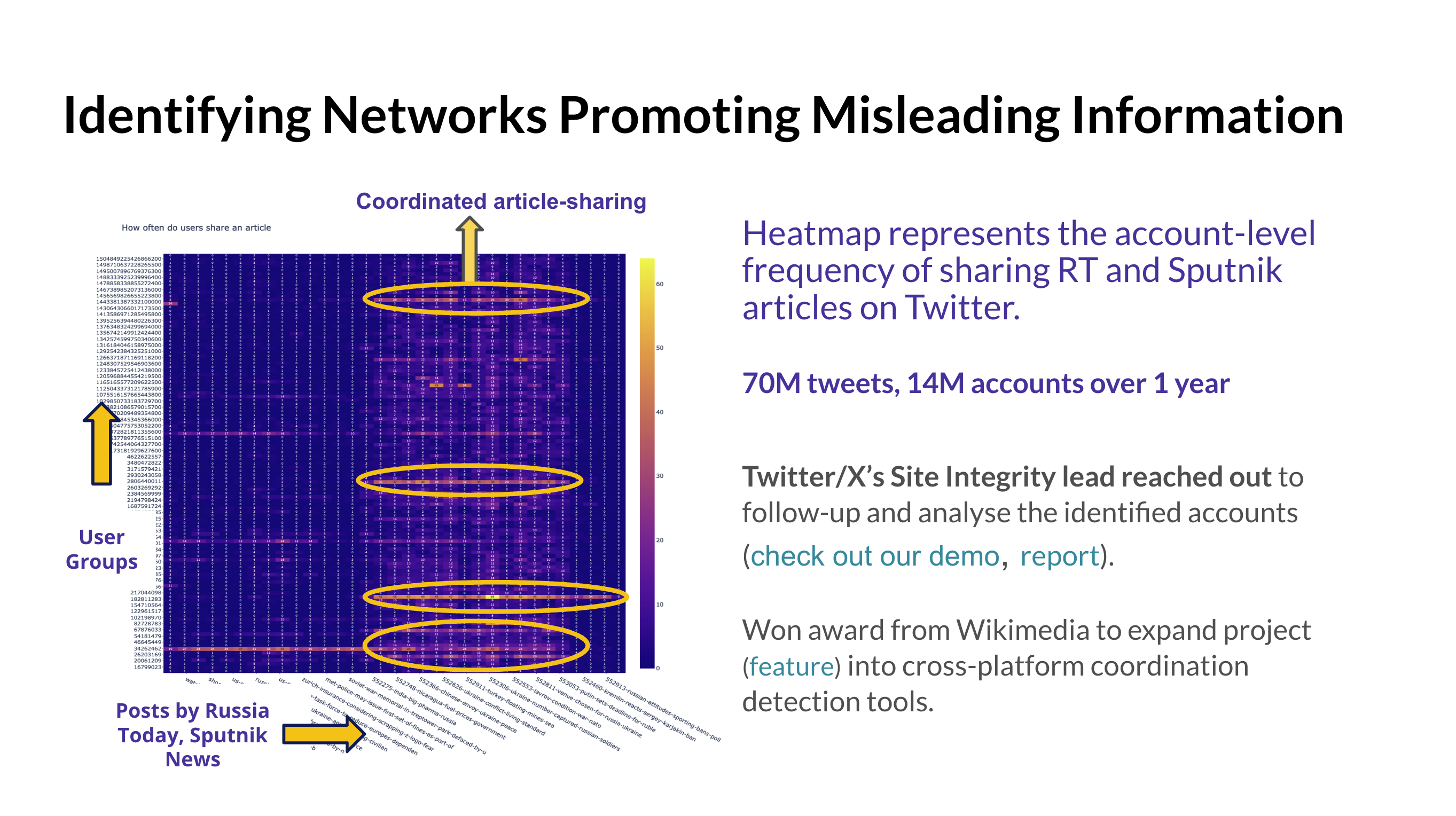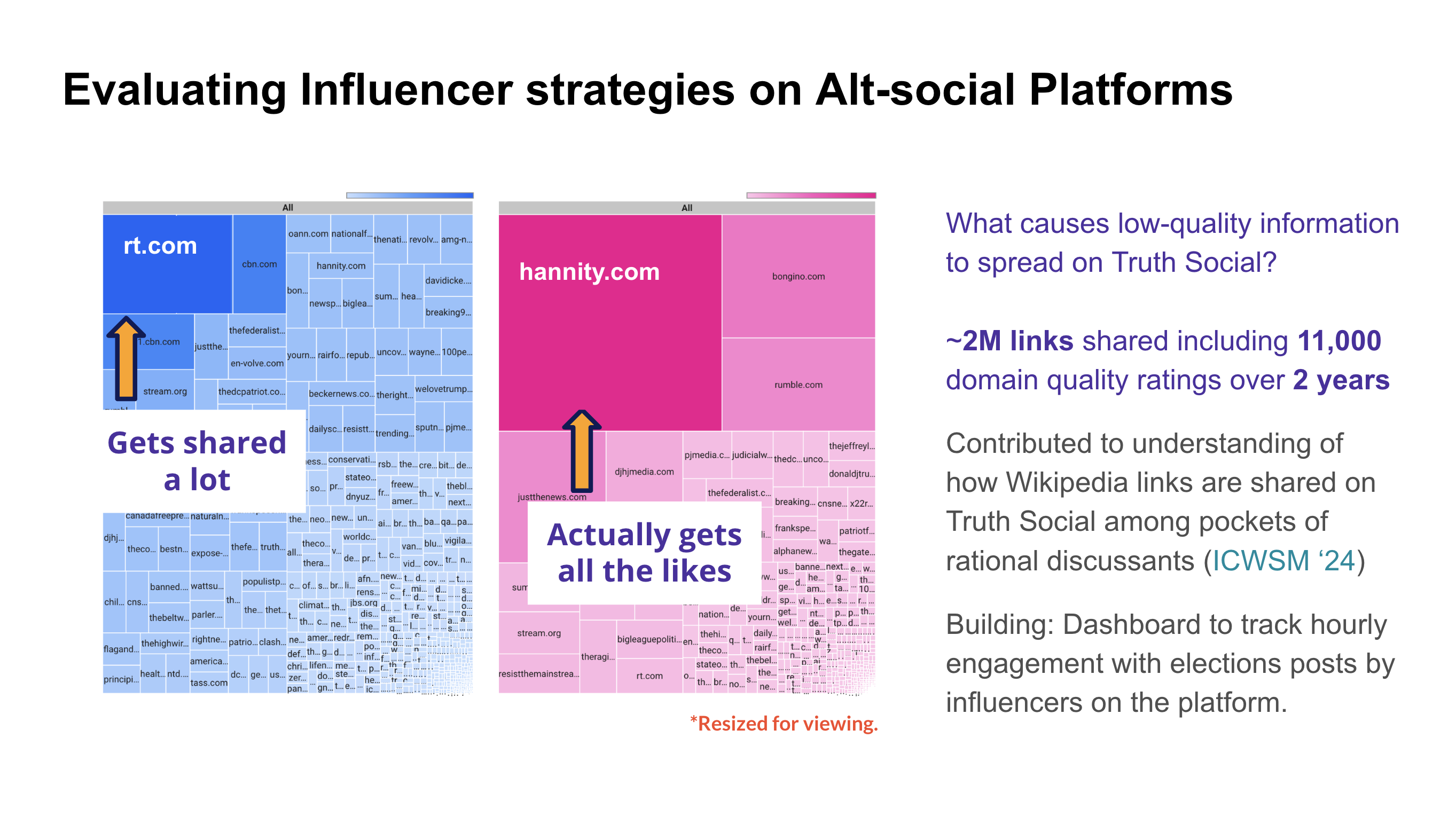Online Safety
Identifying misleading information and designing technology to support the public auditing of online information
The fight against digital harm is no longer confined to individual platforms but spans a complex, cross-platform ecosystem. My research focuses on uncovering the social drivers of harms, including coordinated influence campaigns, the amplification role of social media influencers, and the challenges posed by fragmented platform ecosystems. By leveraging data-driven insights and interdisciplinary methods, I aim to rebuild digital trust and empower external researchers to audit online information networks effectively.
Uncovering Coordinated Networks and Online Harms
Coordinated campaigns often rely on hidden networks of actors operating across platforms. My work has focused on identifying these networks and their methods of operation:
- Debunked Claims on Telegram: In collaboration with intelligence experts, my team analyzed over 4,500 Telegram channels spreading pro-Russian narratives during events like the Moscow Blasts. Using graph-theoretic clustering, we identified “bridge” channels that amplify content across smaller cliques, creating viable nodes for intervention. This work was presented at the Stanford Trust & Safety Research Conference.

-
Meta’s Adversarial Threat Takedown: Our team’s analysis of 600 Facebook groups and pages targeting political figures in Bangladesh revealed gendered harassment campaigns reaching over 95 million users. This research informed Meta’s adversarial threat takedown in Q1 2024 and was featured in national news headlines.
-
Deleted Accounts on Twitter(Parts 1 and 2): We studied the decay of deleted tweets to measure the scale of coordinated influence campaigns. By analyzing suspended accounts tied to hyperpartisan content, we uncovered how botnets amplify divisive rhetoric before disappearing post-campaign.

These findings underscore the importance of external audits in detecting political targeting, hate speech, and harassment that platforms often fail to address comprehensively.
The Role of Influencers in Amplifying Misleading Claims
Social media influencers play a dual role as amplifiers of both credible and misleading information. My research highlights their impact across platforms:
-
Truth Social Study: In one of the first longitudinal studies on Truth Social, we analyzed 2 million posts from 1,500+ media websites shared over two years. We found that influencers significantly increase the re-sharing of news articles among ideologically aligned audiences. While some communities engage in rational discourse (e.g., sharing Wikipedia links), others amplify low-quality information.
-
Youth Engagement with Influencers: Nearly 40% of young adults rely on influencers for news, according to recent Pew Research. My ongoing work examines how influencers shape civic engagement among youth in the global majority. This research aims to understand the interplay between trust, credibility, and false claims in influencer-driven ecosystems.
-
Cross-Platform Amplification: Influencers often operate across multiple platforms like Instagram, TikTok, and X (formerly Twitter), creating ripple effects that amplify narratives—true or false—beyond single audiences or demographics. Given their reach and perceived credibility, influencers occupy a pivotal position in shaping public discourse. However, their unchecked power also makes them vectors for misleading claims.

Cross-Platform Analysis of Online Information Networks
Platforms are siloed ecosystems unable to study each other’s data or coordinate interventions effectively. My research addresses this gap through cross-platform analysis:
-
Arbiter Platform: My team is developing Arbiter, a platform analyzing over 250 million posts from multiple social networks including Telegram, Truth Social, Bluesky, and others. Arbiter tracks narrative propagation across communities in real-time, enabling researchers and the public to identify trends and patterns of dissemination.
-
Bluesky and Decentralization: Decentralized platforms like Bluesky aim to offer users greater agency but also pose unique challenges for moderation. My research explores how decentralization–in particular the ability to block users–impacts user agency on social media, and uses the affordances provided by their robust third-party ecosystem to design unique online experiments.
-
Cross-Platform Political Targeting: By aggregating over half a billion posts from six platforms, my team is working to understand how adversarial actors exploit platform vulnerabilities to target specific demographics with tailored discrediting, hateful, and harassment campaigns.
My efforts demonstrate the critical role external researchers play in auditing online information networks—-an essential step toward fostering transparency and accountability.